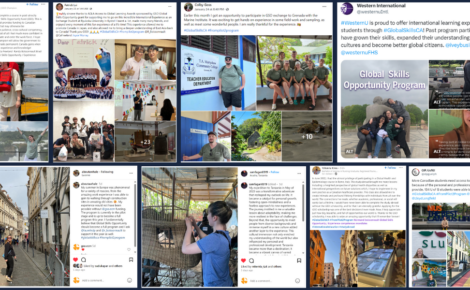To provide access to global learning, we must increase outreach to and support of students who are historically excluded from study abroad. University of Calgary aims for 50% of its students to graduate with a global learning experience. To meet this goal and develop more thorough marketing and individualized pre-departure support mechanisms, UCalgary International is developing a 12-month co-op placement focused on developing and implementing these access and inclusion initiatives.
By piloting a co-op role within UCalgary International, the team is testing a new approach to preparing students with individualized student needs by providing a dedicated resource to focus on increasing awareness and participation by targeted student groups as well as relatable peer-to-peer support during their pre-departure experience.



